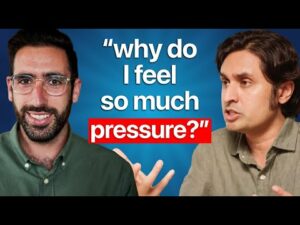This Groundbreaking Study Just Shattered Everything You Thought You Knew About Intermittent Fasting – Prepare to Be Surprised!
Ever paused mid-scroll wondering if skipping breakfast is messing with your brain’s mojo? Like, does ditching that morning meal turn us into scatterbrains, or is it just a hangry myth? Well, I dove into a fresh Psychological Bulletin review that flips this script: short-term fasting doesn’t dim your mental sparkle after all. I mean, we’ve all felt that cranky, distracted vibe when our stomachs start rumbling — but it turns out, that’s not the brain throwing in the towel on focus. Intrigued yet? Stick around as we unpack how your brain cleverly switches fuels when you skip a meal, and why not all fasts are created equal. Ready to bust some fasting myths and maybe even rethink your breakfast routine? Let’s get into it. LEARN MORE
WILL REGULARLY SKIPPING breakfast make it harder to concentrate? According to a recent Psychological Bulletin review, the answer is no. Scientists have found enough evidence to firmly say that short-term fasting does not cause a dip in mental clarity.
“The idea that fasting interferes with mental performance probably stems from how we feel when hungry—tired, distracted, and irritable,” explains David Moreau, PhD, associate professor in the School of Psychology at the University of Auckland in New Zealand and coauthor of the study. “It’s natural to assume that those sensations reflect poorer cognitive function. Some early studies supported this view, but when you pool the evidence, those effects largely disappear.”
This might sound like great news if you’ve been curious about intermittent fasting, but was nervous about it giving you brain fog. But not all fasting is created equal. There’s a difference in how the brain operates on a short-term versus long-term fast. Read on to find out more.
Short-Term vs Long-Term Fasting: What’s Better for Cognition?
Researchers analyzed 71 studies that recruited nearly 3,500 people who were either fasting or had recently eaten. They compared their cognitive performance, including memory recall, decision-making, response time, and accuracy. Most of the fasting periods were short-term, lasting on average around 12 hours.
After crunching the data, the researchers discovered no meaningful difference in cognition in people who did short-term fasts and those who recently ate. “The brain has built-in mechanisms to stay fueled and functional, even in the absence of food—a reassuring message for anyone who practices intermittent fasting,” Moreau says.
Now this wasn’t the case for people who did longer fasts that lasted over 12 hours. For this group, the researchers found small dips in their cognitive performance.
“Fasts that last longer than 24 hours may negatively affect cognitive performance,” adds Sonya Angelone, PhD, RDN, consulting nutritionist and former spokesperson for the Academy of Nutrition and Dietetics. But, like the study showed, Angelone says short-term intermittent fasting can be safe mentally for most people.
But What if You Do Feel Unfocused When Fasting?
Now the study showed no actual difference in cognitive performance in people used to short-term fasting. But if you’re just starting out, your body needs time to adapt. Albert Matheny, RD, CSCS, a registered dietitian and co-founder of SoHo Strength Lab, says it could be one reason why you might feel mentally off when you first start fasting.
“It’s harder for people who never fast,” he explains. “If you don’t eat and you usually eat on a consistent schedule, you might be very hungry—that’s mentally distracting.” People with metabolic conditions like diabetes may find that intermittent fasting impacts their cognition, too, Moreau says.
So How Does Fasting Affect the Brain?
Fasting does impact your brain—just not in your cognitive abilities (which is how you think, learn, remember, and judge things).
Under normal eating conditions, Moreau says it mainly relies on glucose stored as glycogen. Cue fasting. When you skip a meal, you lose that source of fuel. However, Moreau says the brain is “remarkably adaptable” and has a backup plan.
“When glycogen levels fall during fasting, the body begins converting fat into ketone bodies, which the brain can use as an efficient alternative fuel,” he explains.
“Your brain metabolism is prioritized over other parts of your body so, if you fast, your brain gets fed before your muscles,” adds Clifford Segil, DO, a neurologist at Providence Saint John’s Health Center. And that’s what allows your cognition to stay steady over short-term fasting, he says.
This flexibility helps ensure that your brain gets a steady energy supply, even when food is scarce, Moreau says. “In evolutionary terms, it makes sense: Our ancestors needed to stay alert and think clearly while seeking food, not become sluggish when hungry,” he says. “That capacity for cognitive stability likely persists today.”
Korin Miller is a freelance writer specializing in general wellness, sexual health and relationships, and lifestyle trends, with work appearing in Men’s Health, Women’s Health, Self, Glamour, and more. She has a master’s degree from American University, lives by the beach, and hopes to own a teacup pig and taco truck one day.
Jocelyn Solis-Moreira, MS is the associate health & fitness for Men’s Health and has previously written for CNN, Scientific American, Popular Science, and National Geographic before joining the brand. When she’s not working, she’s doing circus arts or working towards the perfect pull-up.




















Post Comment